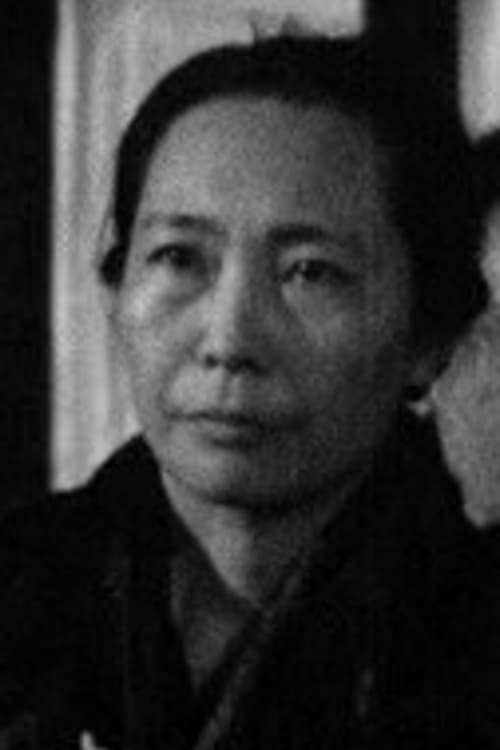Noriko Honma
Nascimento : 1911-11-29, Yubari, Hokkaido Prefecture, Japan
Morte : 2009-04-12
História
Noriko Honma (本間文子 Honma Noriko, born 29 November 1911 - 12 April 2009) is a Japanese actress whose film work occurred primarily during the 1950s. She was born in Hokkaido. She worked in many of Akira Kurosawa's films, first appearing in Kurosawa's Rashomon as the Miko, also in Ikiru, The Seven Samurai, Akahige, and Dreams.

A narrative feature made from a collage of clips from various films around the world.
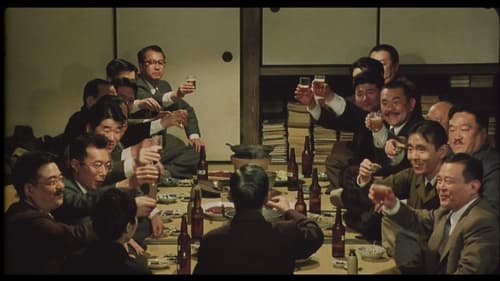
Old lady holding a cat
Considerado um dos melhores diretores de todos os tempos, Akira Kurosawa encerra suas realizações cinematográficas com esta obra-prima perfeita, Madadayo. O filme segue as duas últimas décadas de Hyakken Uchida, um escritor e professor que se aposenta nos anos da guerra, no início dos anos 40. Seus alunos o veneram e todos os anos fazem um ritual de aniversário chamado “Mahda-kai? (Está pronto?)” para que Uchida beba um grande copo de cerveja e responda “Madadayo! (Ainda não!)”, reconhecendo que a morte pode estar próxima, mas que a vida continua. (e 10 - Estimado 10 Anos)
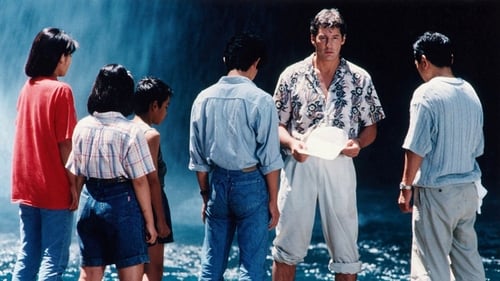
Mourner
Em umas férias de verão, uma senhora sobrevivente da bomba de Nagasaki está com seus quatro netos reunidos e conta para eles as lembranças do dia do ataque, que vitimou milhares de pessoas (60 mil e 80 mil seres humanos em Nagasaki), entre elas, seu marido.

Produção japonesa que apresenta uma série de curtas-metragens do diretor Akira Kurosawa. Um dos segmentos mostra um menino espionando a cerimônia de um casamento de raposas, enquanto que em outra história, um jovem é testemunha de um momento mágico no jardim. Muitos dos filmes estão interligados através de um tema ambiental.

Old Woman
A squadron of Japanese Self-Defense Force soldiers find themselves transported through time to their country's warring states era, when rival samurai clans were battling to become the supreme Shogun.

Tea shop old woman
In the 19th century Edo period, sisters Oshizu and Otaka have sacrificed their personal happiness to work and care for their ailing father. Otaka falls in love, but can’t accept a marriage proposal since her older sister needs to marry first. When Oshizu learns of this decision, she takes matters in her own hands.
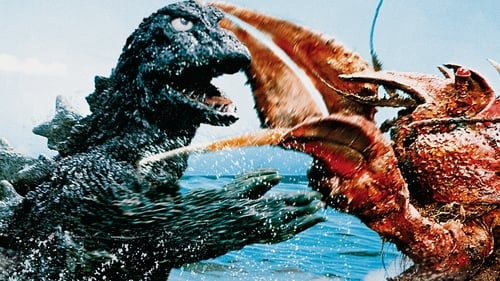
Spiritualist
Um cruzeiro marítimo vai mal quando um acidente em uma ilha tropical sujeita a tripulação a encontrar um exército que quer dominar o mundo. Enquanto eles tentam sair vivos, Godzilla luta contra um monstro marinho gigante que habita as águas e só pode ser mantido afastado pelo suco de uma fruta que cresce na ilha.

Resident
No Japão do século 19 , em um hospital de caridade o Dr. Niide (Toshiro Mifune), um médico duro mas honrado, conduz um jovem estagiário sob sua orientação ao longo de inúmeros casos difíceis.
Ambientado em tempos feudais, médico novato, Yuzo Kayama, é enviado para uma enfermaria pobre esperando ser apenas passageiro, mas está furioso ao saber que ele deve ficar. Ele tenta provocar sua dispensa, mas é frustrado pelo médico-chefe "Barba Vermelha" (Toshiro Mifune), um homem cujos métodos são tão carinhosos quanto imprevisíveis.
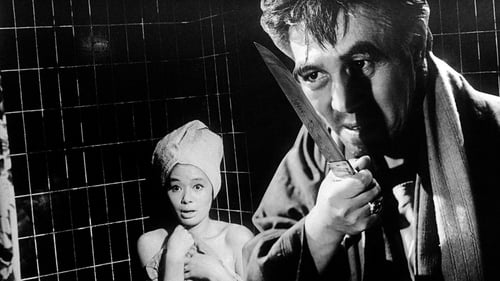
Matsuko - Shiitake's wife
During the mayoral election, two ex-prisoners decide to replace the lucky pen of an annoying candidate with a mini-bomb.
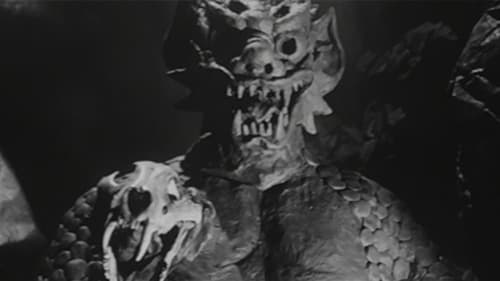
Ken's Mom
In an effort to find an economic means of purifying salt water, a joint U.S.-Japanese military command is set up on an isolated Japanese island where an unusual salt water lake is situated. However, their purifying experiments arouse the prehistoric monster Obaki from hibernation at the lake's bottom, and it proceeds to attack Japan. Although made by a U.S. independent film company, this film was based on a Japanese Toho monster film of 1958, "Daikaiju Varan", from which all of the monster effects scenes and a few incidental dramatic shots were edited into it.
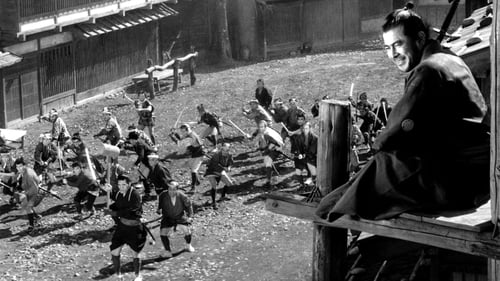
Farmer's Ex-wife
A história ocorre em 1860 e baseia-se na chegada de um ronin a uma cidade que sofre com a guerra entre duas gangues. Kuwabatake Sanjuro, que significa "Amoreira de 30 Anos" (Toshirō Mifune), aproveitando a sua perspicácia tenta ganhar dinheiro e, ao mesmo tempo, livrar a cidade das gangues rivais, ora associando-se a um grupo, ora associando-se a outro, tirando proveito da situação e manipulando-os, devido ao despreparo estratégico dos dois grupos, que é demonstrado através de diversas cenas satíricas durante o filme.

A skilled country doctor's talents are such that he can even perform operations as difficult and novel as removing a patient's kidney for the first time in Japan. Unfortunately for him, however, his wife's addiction to gambling is of such a magnitude that he is down to selling his underwear to make money. The image sticks and he becomes known as the 'underwear doctor.' On the other hand, his successful surgery's patient is so grateful he himself wants to become a physician.

Mineko (Sekine's wife)
Mama, mais conhecida por Keiko, uma gueixa de meia-idade tem que decidir se aceita casar-se ou se abre um bar por conta própria. A família querendo dinheiro, os clientes querendo atenção, e ela está sempre endividada. A vida de uma gueixa é analisada, assim como o sistema que aprisiona, e por vezes mata, quem nele sobrevive. (e 12 - Estimado 12 Anos)

Ryuta and Mineo Komatsu are brothers, both yakuza (gangsters). Mineo, although complicit in crime, even murder, wants out of the gangster life, hoping to become a successful singer instead. Ryuta loves his brother, but Mineo's possible defection presents problems for the gang, and Ryuta realizes he must kill his brother if he wants to survive.
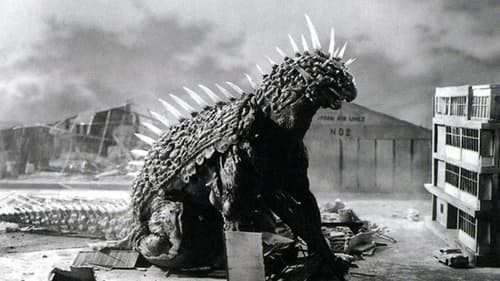
Ken's Mom
When a rare species of butterfly is found in a mysterious valley in Japan, a pair of entomologists go to investigate and find more. They discover Varan, a giant monster, Who decided to leave the valley and head straight for Tokyo.
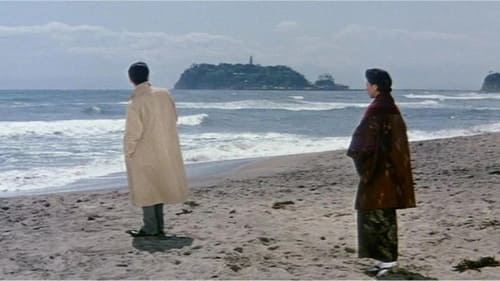
A war widow with a young boy manages a farm with her bossy mother-in-law. When a reporter comes to interview her, the two begin an affair. He turns out to be married and won't leave his wife. Her older brother tries to marry off his children and hang on to/ extend his farm through an advantageous marriage in the face of threatened land confiscation and the desire of his children to get comfortable urban jobs instead of the backbreaking work in the paddy fields under parental control.

Mariko's Mother
Ultra-perky model likes single freedom but feels ryosai kenbo ("good wife, wise mother") pressure, exemplified by her bored-to-tears sister.

An Ishiro Honda film. The first part of A Rainbow Plays in My Heart released the same day as the second film.
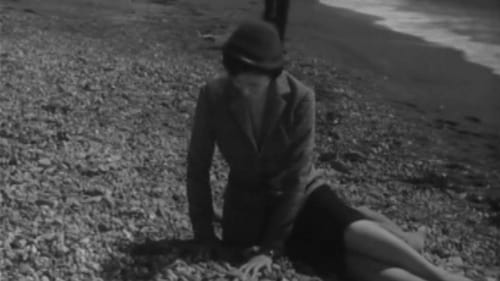
Nanny
An Ishiro Honda film. The second part of A Rainbow Plays in My Heart released the same day as the first film.
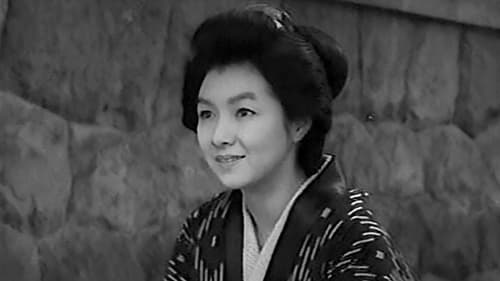
Otora, the foster mother
A woman marries, gives birth to a stillborn child, and divorces, falls in love with a hotel-keeper, only to find herself subordinated to his drive for success, takes up with a tailor who cannot console himself with her strong personality.

Natsu, Chiya's Mother (uncredited)

Kiyoko (Takamine Hideko) and her husband want to open a coffee shop. She becomes increasingly close to the bank clerk (Mifune Toshiro) she's asked for a loan.
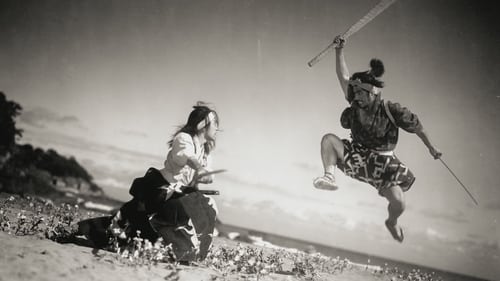
(uncredited)
Neste terceiro filme da Trilogia do Samurai de Hiroshi Inagaki (baseado no livro "Musashi" de Eiji Yoshikawa), Musashi (Toshirô Mifune) é desafiado pelo confiante e habilidoso Sasaki Kojiro (Koji Tsuruta), com o qual duelará dentro de um ano. Neste período decide viver nos arredores de uma vila cultivando legumes, enquanto ainda é perseguido por Otsu (Kaoru Yachigusa) e Akemi (Mariko Okada), ambas apaixonadas por ele. Conforme a data do duelo se aproxima, Musashi é forçado a tomar uma decisão que concilie ou não seus sentimentos por Otsu e sua paixão pelo caminho do guerreiro, ao mesmo tempo que se prepara para o maior desafio de sua vida.
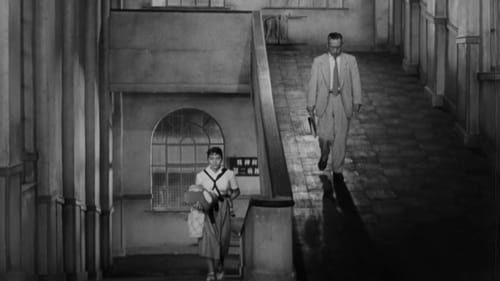
Worker family member
Kiichi Nakajima, um idoso proprietário de fundição, convencido de que o Japão será afetado por uma guerra nuclear iminente, resolve transferir sua família para a segurança no Brasil. Sua família decide que seja declarado incompetente e o Dr. Harada, um conselheiro do Tribunal Doméstico, tenta arbitrar. (e 12 - Estimado 12 Anos)
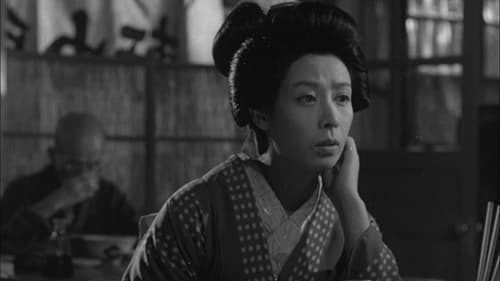
The story of a couple, a spoiled son and a down-to-earth girl, in Osaka in the early Showa era. The film won the prestigious Blue Ribbon awards for best director, best actor (Morishige) and best actress (Awashima), and the Mainichi Concours award for best actor and best screenplay (Yasumi Toshio). It ranked second (after Naruse Mikio’s Ukigumo) on the Kinema Junpō top ten films for the year.

Forced on the road by yakuza obligations, a man sets out on a reckless journey to Tsumagoi. Movie posters for local cinemas were often displayed at sento (public baths) too. The handwritten text on the bottom here announces the film will play at Hassen for 3 days.

Old Woman of O-Haru
Lonely youth Shinji meets Hatsue, a pretty pearl diver, on the beach and the two fall in love. But Shinji has a rival for Hatsue's affections, Yasuo.
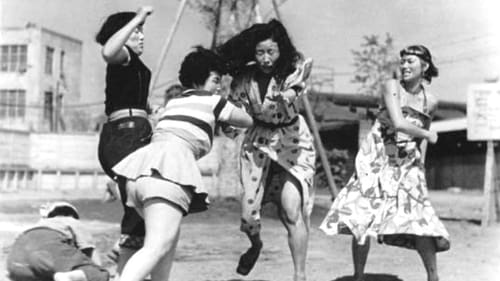
Toku, a factory worker gives food to a starving woman, Tsuru, who then follows him home. He shares a shack in a shanty village in Kawasaki with his friend Pin-chan. The two men try to get rid of her but then let her stay when she gives them money. Tsuru tells the people of the village that she lost her job due to a strike, then was robbed of her severance pay, then sold to a brothel in Tsuchiura. She ran away with a friend from Kawasaki. Toku and Pin-chan sell her to a geisha house and spend the money. She is thrown out. The owner demands his money back. Tsuru earns the money to pay their debt by working as a prostitute outside the station. The other prostitutes beat her. She fends them off with a policeman's revolver and is then shot dead by the police.

A legendary gangster raises himself out of a small town and gathers followers on his rise to power.
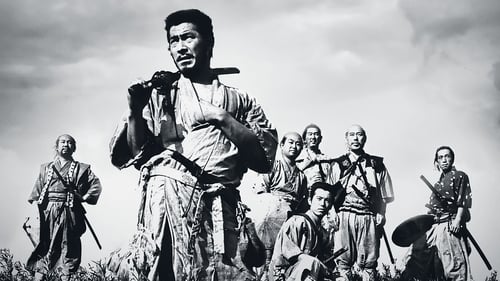
Woman Farmer
No século XVI, durante a era Sengoku, quando os poderosos samurais de outrora estavam com os dias contados, pois eram agora desprezados pelos seus aristocráticos senhores. Kambei (Takashi Shimura), um guerreiro veterano sem dinheiro, chega em uma aldeia indefesa que foi saqueada repetidamente por ladrões assassinos. Os moradores do vilarejo pedem sua ajuda, fazendo com que Kambei recrute seis outros ronins (samurais sem mestre), que concordam em ensinar os habitantes como devem se defender em troca de comida. Os aldeões dão boas-vindas aos guerreiros e algumas relações começam. Katsushiro (Ko Kimura) se apaixona por uma das mulheres locais, embora os outros ronins mantenham distância dos camponeses. O último dos guerreiros que chega é Kikuchio (Toshiro Mifune), que finge estar qualificado mas na realidade é o filho de um camponês que almeja aceitação.


The eldest daughter of a rural family Mon returns home from Tokyo pregnant after an affair with a college student Kobata, which causes a scandal that will threaten the marriage prospects of the younger sister San, in her cash-strapped family. The ill-tempered eldest brother Inokichi decides to take on the role of disciplinarian, with harrowing results.

(uncredited)
A story of unhappy youths and the perils of lack of sex education.
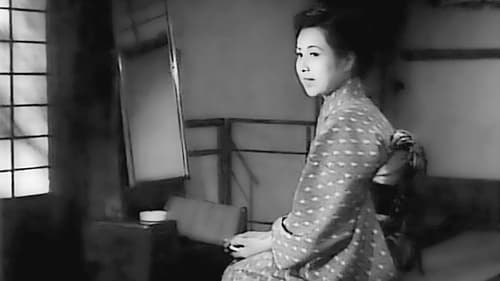
Ten years into a marriage, the wife is disappointed by the husband's lack of financial success, meaning she has to work and can't treat herself and the husband finds the wife slovenly and mean-spirited: she neither cooks not cleans particularly well and is generally disagreeable. In turn, he alternately ignores her and treats her as a servant. Neither is particularly happy, not helped by their unsatisfactory lodgers. The husband is easily seduced by an ex-colleague, a widow with a small child who needs some security, and considers leaving his wife.

Gosho’s most celebrated film both in Japan and the West, Where Chimneys Are Seen is perhaps the most compelling example of his concern for, and insights into, the everyday lives of lower-middle-class people. Based on Rinzo Shiina’s novel of the absurd, the film depicts the lives of two couples against the backdrop of Tokyo’s growing industrialization during the 1950s.

A married couple looking for an apartment move in with the husband's co-worker, a widower. The husband becomes jealous of the widower and his wife.
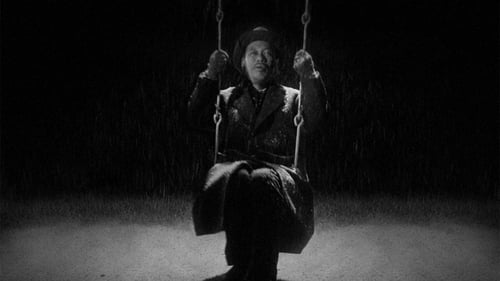
Housewife
Burocrata de longa data, que não liga para nada que não o interessa, descobre que está com câncer. Decide, então, construir um playground em seu bairro, tentando descobrir um sentido para sua vida.
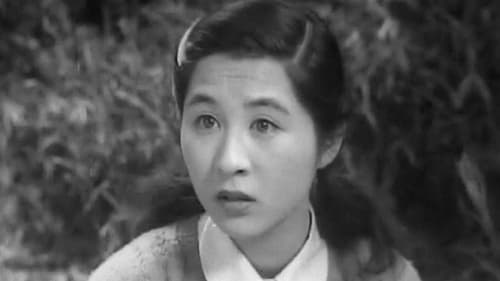
Mino Hirai
A teenaged girl witnesses her widowed mother's attempt to sustain her family.

Otoku
Soichi Ataka is the eldest son of Ataka family. Although mentally challenged, he's a person with a gentle heart. Soichi's wife, Kuniko is devoted to her husband and together the couple runs the family farm. Their happy family life comes to an abrupt halt when Soichi's half-brother, Joji returns with his wife Masako after failing in a business.

Japanese "kayo" film based on the song "Ieraishan" by Yoshiko Yamaguchi.
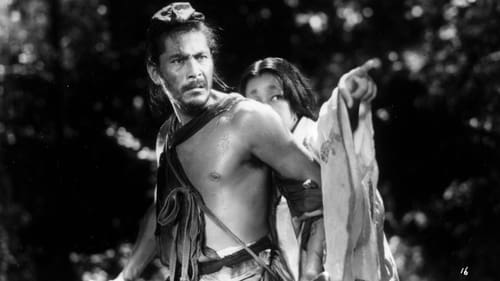
Medium
No Japão do século XI, um lenhador, um sacerdote e um camponês procuram refúgio de uma tempestade nas ruínas de pedra do Portão de Rashomon. O sacerdote conta detalhes de um julgamento que testemunhou, envolvendo o estupro de Masako e o assassinato do marido dela, Takehiro, um samurai. Em flashback é mostrado o julgamento do bandido Tajomaru, onde acontecem quatro testemunhos, inclusive de Takehiro através de um médium. Cada um é uma "verdade", que entra em conflito com as outras.
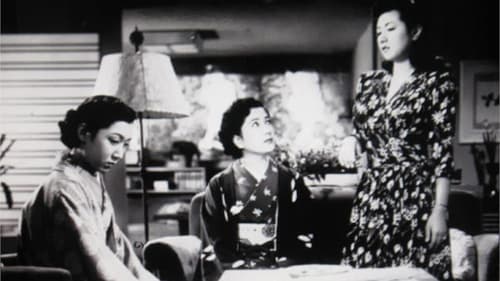
Itakura's mother

Sanpei's mother
An attempt is made to suppress a journalist's investigation of collusion between a rural police chief and the local gangster bosses.
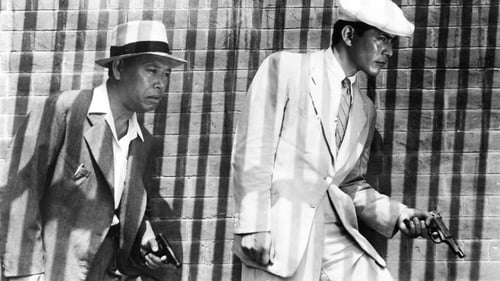
Wooden Tub Shop woman
Murukami, um jovem investigador de homicídios, é roubado em um ônibus e perde sua pistola. Ele começa uma busca insana atrás de sua preciosa arma, sem sucesso, até receber a ajuda de um sábio e mais experiente detetive chamado Sato. Clássico noir do mestre Akira Kurosawa, que redefiniu o padrão de filmes policiais japoneses. (e 12 - Estimado 12 Anos)
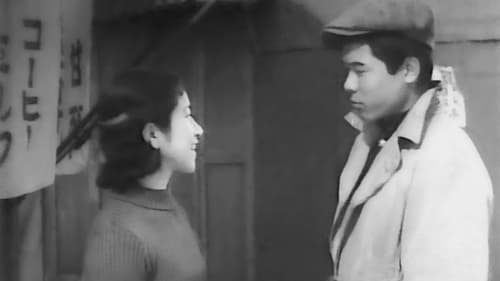
Ishimura's wife
The Whole Family Works, Mikio Naruse's adaptation of a Sunao Tokunaga novel, feels more of a piece with the writer/director's quietly observant and psychologically charged later work. For the Naruse-familiar, it is an anomaly only in its placement within his filmography—indeed, this could be a film made by the elder, stasis-minded Naruse momentarily inhabiting, through a metaphysical twist of fate, his stylistically exuberant younger self. Set in depression-era Japan around the time of the Sino-Japanese War (which the director evokes, during a brief dream sequence, by dissolving between children's war games and actual adult warfare), The Whole Family Works gently observes a family coming apart at the seams. Ishimura (Musei Tokugawa) is the jobless father of nine children.
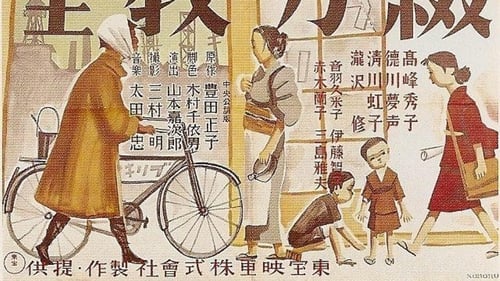
Aunt
Based on an autobiographical story by Toyota Masako.


